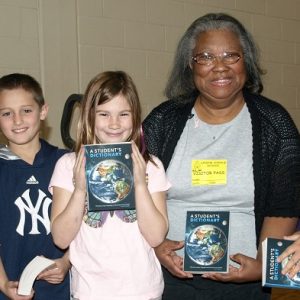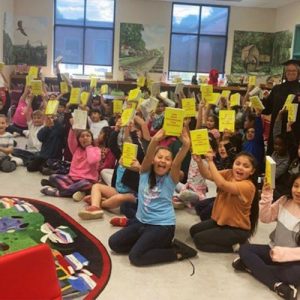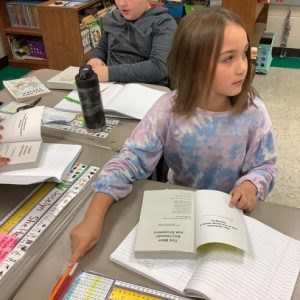Rotary Club donates dictionaries to area students
When local attorney John Arch was in school, he would occasionally read a page out of the dictionary just to learn some new words.
Now Arch, a past president of the Sharpsburg Aspinwall Rotary Club, serves as project chairman tor the club’s Dictionary Project that works to put dictionaries into the hands ot area students.
This is the fourth year for the program, according to Arch.
In recent weeks, the club has provided a total ot 420 dictionaries to third graders in the Fox Chapel Area School District’s elementary schools – O’Hara, Hartwood, Fairview and Kerr – as well as three private schools in the area.
"We do this at the third-grade level because that is the year when students learn how to use the dictionary and how to apply those skills of reading and writing to do research," Arch explains.
The dictionary donation program is a project that many Rotary Clubs participate in on a national level, Arch says.
It is part of a national campaign, The Dictionary Project, an organization based in Charleston, S.C., that promotes literacy by enlisting the help of service organizations, as well as individuals, to distribute dictionaries to children.
According to the organization’s mission statement, "the goal of this program is to assist all students in becoming good writers, active readers, creative thinkers, and resourceful learners by providing them with their own personal dictionary. The dictionaries are a gift to each student to use at school and at home for years to come." The organization goes on to explain that educators see third grade as the dividing line between learning to read, and reading to learn, which is why participating donors are asked to give the books to third grade students in their communities.
Then, local sponsors, like the Rotary, purchase the dictionaries at a reduced cost, less than $2 per book, and hand-deliver them to the third graders in their community.
"The kids really love them, and the teachers say the kids use them too," says Arch.
Locally, on distribution day, Arch visits the classroom and gives a short talk to students about the dictionary and its features, so they know it offers more than just definitions of words. He reviews extra features including biographical sketches of the American presidents, the Declaration of Independence, the Constitution of the United States, the planets and solar system, the American Sign Language alphabet, Braille, and more. He also spotlights a section that provides an overview of the nations of the world, as well as a section on each of the U.S. states. And, Arch spends some time talking about the dictionary’s shortest and longest word.
Every child in the class receives a book, as well as the classroom teacher. "I think it’s good tor all kids to have the same resource and have their own individual dictionary," says Arch.
In this technological age, with resources like the Internet and various search engines, some may think that a dictionary is obsolete. Not so, says Arch. He believes in the service project and says that many of the children, those in need as well as those whose families could afford one, do not have dictionaries at home.
The club has been conducting the project for several years now, so many students already are familiar with the campaign because their siblings have received a dictionary through the program.
Arch shares, "One student said, ‘Thank you so much. My brother has his and won’t let me use it and I really wanted one.’"



